(This essay is Part 1 of a two-part article on Jesus’ Jewish Messianic Claims.)
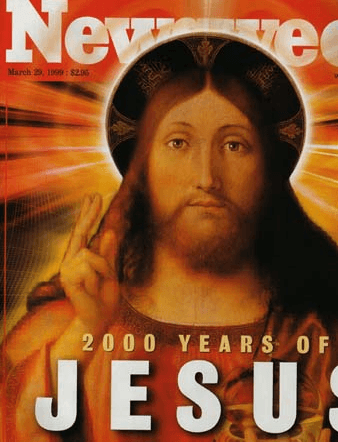 Back in the 1980’s, there was little in the popular media about the historical Jesus except for the Jesus Seminar, with its radical skepticism of the Gospels and its scandalous “discoveries” about Jesus.
Back in the 1980’s, there was little in the popular media about the historical Jesus except for the Jesus Seminar, with its radical skepticism of the Gospels and its scandalous “discoveries” about Jesus.
While the group’s sensationalism was roundly criticized, their pessimism about the reliability of the New Testament as a witness to Christ’s reality wasn’t uncommon in academic circles.
I was attending college about this time, and my New Testament professors were also convinced that the Gospels were composed very late and riddled with legends. The real, Jewish, Jesus was unknowable, and the Christ I worshiped was largely an invention of the Gentile church.
One of the reasons for their skepticism was that Jesus’ words about himself in the synoptic Gospels (Matthew, Mark and Luke) seemed to bear little resemblance to the exalted, glorified figure we hear about in the rest of the New Testament.
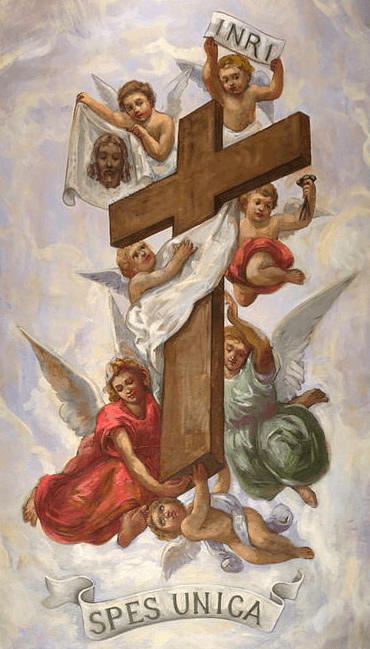 Many scholars of the time felt that Jesus never claimed to be the coming Messiah. Their job, as they saw it, was to scrape away the “ecclesiastical incrustations” of the later church.
Many scholars of the time felt that Jesus never claimed to be the coming Messiah. Their job, as they saw it, was to scrape away the “ecclesiastical incrustations” of the later church.
Growing up in a faithful Lutheran home, I had been eager to take courses to study the Bible at a higher level. But the message that every class communicated was that serious inquiry could lead only to disbelief. Discouraged, I put academic study of the Bible on hold. Instead I poured my energy into getting a Ph.D. in the sciences, aiming for a career in teaching and research.
Discovering his Jewish Context
Imagine my shock years later, after I had become a professor myself, when I attended a seminar by an expert on Jesus’ Jewish context who was convinced that he did in fact claim to be the promised Messiah. I couldn’t understand why he didn’t share my professors’ cynicism. What sources had he consulted, and how could they come to such opposite opinions of the rest of the academic world?
It turns out that he had been reading the work of a remarkable collaboration of Christian and Jewish scholars that had begun in Jerusalem in the early 1960s, and still continues to this day. World-class scholars of Second Temple Period Judaism would meet to scrutinize the words of Jesus in the synoptic Gospels and discuss them in their original Jewish linguistic and historical context.
These scholars were focusing on Jesus’ Jewish setting and they found that he fit perfectly. Jesus interpreted the Torah and taught groups of disciples as other early rabbis did. But the closer that they looked at Jesus’ words in their Hebraic context, the more they observed his high self-awareness and bold claims. Over and over Jesus said and did things that boldly communicated the idea that he was God’s promised Messiah.
Why didn’t my professors notice this? Because Christian scholarship has only recently begun to appreciate the sophistication of early rabbinic thought and the familiarity Jesus’ audience had with their Scriptures (our Old Testament). Jesus was speaking into a society that was well versed in its religious texts, and he simply didn’t need to shout from the roof tops, “I’m the Messiah.” Rather, we find him making claims in a subtle way, by referring to himself and his mission in light of well-known messianic passages from his Scriptures.
Bar Kokhba, Son of the Star
We actually find others who took this same approach. About a century later, Bar Kokhba, the Jewish leader with aspirations of defeating the Romans, had coins minted that referred to him as Nasi Yisrael, “Prince of Israel,” hinting that he was the fulfillment Ezekiel 34:24: “My servant David will be prince among them.”
Even his self-adopted name, Bar Kokhba, meaning “son of the star,” reflects the biblical imagery of kings as celestial bodies (Isaiah 14:12, 60:1-3) and hinted at the messianic prophecy of Numbers 24:17:
A star shall come forth from Jacob, a scepter shall rise out of Israel, and shall crush through the forehead of Moab, and tear down all the sons of Sheth.
The titles “Prince of Israel” and “Son of the Star” might not sound like much to Christian readers, but if you know the biblical text well, these epithets would ring in your ears as audacious claims to be the fulfillment of messianic prophecy.
(In this coin from Bar Kokhba, note the star over the Temple, another “hint” to his identity.)
Indeed, Bar Kokhba never directly referred to himself as the Messiah, but Rabbi Akiva and other followers did speak of him this way. Similarly, we find the rest of the New Testament much more expansive about Jesus’ identity than Jesus was himself.
God as “My” Father
The team of scholars in Jerusalem came upon instance after instance where Jesus spoke about himself using phrases that would have shocked Jewish listeners, even though they float right past Christian readers.
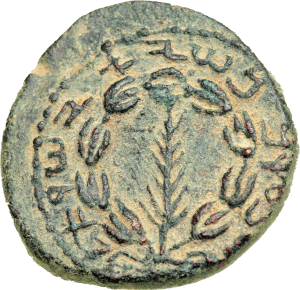 Even from Jesus’ youth, they found statements like this. When he was twelve and lingered in the Temple to debate with the sages, his parents confronted him after days of frantic searching. He responded by saying, “Didn’t you know that I had to be in my father’s house?” (Luke 2:49)
Even from Jesus’ youth, they found statements like this. When he was twelve and lingered in the Temple to debate with the sages, his parents confronted him after days of frantic searching. He responded by saying, “Didn’t you know that I had to be in my father’s house?” (Luke 2:49)
Here, Jesus’ personal reference to God as “my father” is quite messianic. Jewish prayer often addressed God as “Father,” but always in the plural, as “our father.” Even Jesus taught his disciples to begin their prayers with “our father.” But Jesus himself spoke of God in the singular, as “my” Father.
The prediction that the Messiah would refer to God as “my father” is often found in messianic passages (Psalm 2:7; 89:26; 1 Chron. 17:13) and hearkens back to the seedbed of all messianic prophecy, God’s great promise to King David in 2 Samuel 7:
When your days are over and you rest with your ancestors, I will raise up your offspring to succeed you, your own flesh and blood…and I will establish the throne of his kingdom forever. I will be his father, and he will be my son… Your house and your kingdom will endure forever before me; your throne will be established forever. (vs. 12, 13-14, 16)
Jesus’ references to God as “my Father” reflected more than just an intimate affection for God. They would have shocked hearers as a bold statement to be the promised “son of David,” who was also the Son of God.
The Son of Man
Another title that Jesus applied to himself, the “Son of Man,” strikes Christians as oddly indirect and impersonal. Often we interpret it as a humble self-reference that emphasizes Jesus’ humanity. But we pass over the many places where Jesus speaks of the Son of Man “coming on the clouds in glory,” an obvious allusion to Daniel 7:13:
“I kept looking in the night visions, and behold, with the clouds of heaven
One like a Son of Man was coming,
And he came up to the Ancient of Days
And was presented before him.
And to him was given dominion, glory and a kingdom, that all the peoples, nations and men of every language might serve him. His dominion is an everlasting dominion which will not pass away; and his kingdom is one which will not be destroyed.” (13-14)
In this prophecy, an announcement is made that the Son of Man will have dominion over all every nation, and that all the world will be his kingdom. The “Son of Man” in Daniel 7 is quite clearly the Messiah, the Son of David who would reign over God’s coming kingdom.
Of all the prophecies about the coming of the Messiah, Daniel 7 was the most electrifying to Jewish audiences. Other passages describe the Messiah as merely a powerful human king. But the Son of Man of Daniel 7 would not die, but would live forever and reign over an eternal kingdom! How could this be? One answer was that this figure was like a “Son of Man,” similar to a human being, but somehow far greater—even divine, perhaps! Hmm…
The Breaking Forth of the Kingdom
Another fascinating messianic reference that the Jerusalem scholars noted is in Matthew 11:12, which has caused readers down through the ages to scratch their heads. In older translations it reads,
From the days of John the Baptist until now the kingdom of heaven suffers violence, and violent men take it by force.
It sounds as if Jesus was talking about the kingdom “suffering violence” in terms the persecution that he and John went through. A common interpretation was that the kingdom is the victim of violence, but the word “suffers” is not actually present in Greek. It was added by translators to explain how “kingdom” and “violence” could be connected.
The solution is that the word for “violence,” biazo in Greek, also can mean “forceful,” “bursting out,” or even “explosive,” which in Hebrew, is poretz. Understood this way, it reveals an allusion to Micah 2:12-13, yet another powerful messianic prophecy:
I will surely gather all of you, Jacob; I will surely bring together the remnant of Israel. I will bring them together like sheep in a pen, like a flock in its pasture; the place will throng with people. The One who breaks open the way (haporetz) will go up before them; they will break through (partzu) the gate and go out. Their King will pass through before them, the LORD at their head.
Instead of the kingdom being victim of violence, Jesus is describing the bursting forth of God’s kingdom through his ministry!
Jesus’ words in Matthew are better understood to say, “From the days of John the Baptist until now, the Kingdom of Heaven has been forcefully advancing, and forceful men lay hold of it.” (Many translations now reflect this change.)
Jesus was speaking of John the Baptist as one who breaks open the gate of a flock of sheep eager to burst out of its pen. God’s victorious kingdom was now rapidly expanding. It was exploding with people who were eager to receive the good news and join the joyous throng.
Notice how this fits in with Jesus’ pattern of avoiding directly referring to himself and his exalted status. He speaks of the “kingdom of God” breaking forth, but not of himself as its king. But anyone who knew the Micah passage would have recognized the startling implications—that Jesus was the King and Lord at their head.
Indeed, any time Jesus preached about the “kingdom of God,” it was a subtle Messianic claim. Nowadays many people misread “the kingdom” to be just a theological concept that Jesus liked to expound on. But consider the fact that essential task of the Messiah was to establish God’s kingdom on earth. Jesus was not just trying to sell people on a novel plan for world peace. To his Jewish listeners, it was obvious that he was announcing his identity as God’s promised Messiah.
These are only a few of the many messianic claims that Jesus made in a very Jewish way. His sophisticated allusions to his Scriptures can slip past even Christian scholars. That’s why I’ve been so fascinated with studying his Jewish context. The more I learn, the more I hear Jesus’ surprising claims to be the fulfillment of God’s greatest promises.
(Read Part 2: The King of Isaiah 53 at this link…)
~~~~~
This article is a fuller version of a talk I gave at the Robert Lindsey Conference in Jerusalem in 2015. I later expanded this discussion into several chapters in my book Reading the Bible with Rabbi Jesus.
For more on this topic, there is an excellent series of talks called The Messianic Consciousness of Jesus by Robert Lindsey that has just been posted on Youtube (filmed about 35 years ago.) Lindsey, an academically-oriented pastor at Narkis Church in Jerusalem, was a founding member of the Jerusalem School of Synoptic Research, the scholarly consortium of Jews and Christians who made many of these observations.
Also see Brad Young’s Jesus the Jewish Theologian (Peabody, MA: Hendrikson, 1995) 49-72, 243-252. Or see chapter 3 in my book, Sitting at the Feet of Rabbi Jesus (Grand Rapids: Zondervan, 2009) “Stringing Pearls,” 36-49.
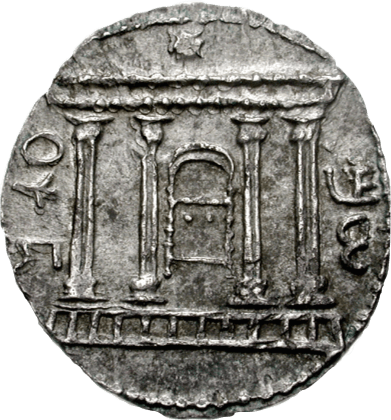

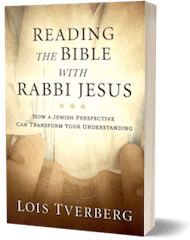
Célia says
Hi, I enjoy your writings. I read “Sitting at the feet of Rabbi Jesus” and “Walking in the dust of Rabbi Jesus”. They made me cry when I saw His Beauty. Thank you for your hard work and for hear His calling to bring forth His Jewish inheritance to life.
Célia
Donald Johnson says
I think this happens a lot in the NT. There is often a reading in a gentile context which has a surface meaning and a reading in a Jewish context which has a deeper meaning.
Todd Bolen says
Lois,
Excellent thoughts! If I can add the thought that Jesus not only spoke messianically but he acted messianically. When he was healing the blind, he wasn’t just being a nice guy, he was doing what Isaiah predicted would happen in the messianic kingdom (Isa 35:5). When he took control of the temple courts, he was acting on his rights as God’s Messiah (see how David acts in 1 Chronicles). Jesus didn’t often come out and say “I’m the Messiah,” but everyone with familiarity with the Old Testament understood. (But since we today don’t know the OT, we don’t get it.) At the end Jesus sealed his verdict with his most direct claim yet: “And you will see the Son of Man sitting at the right hand of the Mighty One and coming on the clouds of heaven” (Mark 14:62). Jesus understood the OT perfectly, understood how he was the One to establish God’s kingdom on earth, and understood that it could only happen if a perfect Servant died so that the sin of all people could be forgiven.
Your goal to help people understand the OT and Jesus’s Jewish context is so important because it brings to us such a depth and richness of the person of Jesus that leads us to worship him as the saints do in Revelation. Thank you for your research and writing!
Lois Tverberg says
Todd, thanks so much, and thanks for your excellent comment. I couldn’t agree more that Jesus acted messianically too. Your example about his miracles being events that were specifically associated with the coming of the Messiah is very important.
As an aside, your comment reminds me very much of a talk I heard by Brad Young at the same conference I spoke at. It was called “The Miracles of Jesus” and his main point was that Jesus didn’t just do miracles for their general “awe-inspiring-ness” but as signs and illustrations of the coming of the Kingdom of God. (It’s viewable online on Vimeo at this link.)
Todd Bolen says
Thanks, Lois. I absolutely agree with Brad’s view that Jesus’s miracles point to him as the one who can bring the kingdom but I strongly disagree that they indicated that the kingdom had already come. (If it had, Jesus never would have taught his disciples to pray for the kingdom to come.) But that’s a bigger topic for another time. Thanks for pointing me to the talk. Keep up the great work.
Lois Tverberg says
Todd, good point to make. I thought this was what I was meaning too.
Brad begins his talk by quoting his mentor Flusser in saying, “In Jesus’ view, miracles were not isolated incidents but evidence that the devil had already fallen and that they were beholding the realization of the Kingdom of Heaven on earth.” Brad is talking about a new and unfolding reality that isn’t complete until “every knee shall bow and every tongue confess” that Christ is Lord of all.
Are we on the same page? We may have to take this discussion up elsewhere, but I think Brad is going in the same direction that you are.
Todd Bolen says
Brad contrasted his view with Ladd. Ladd believes in an already/not yet kingdom. Brad (with Flusser) believes in an already kingdom. I believe in a not yet kingdom, and I think that this should be the natural view for any who love the OT and Jewish backgrounds. The already view was invented and developed by those who denigrated the OT and advocated replacement theology (the church = Israel).
Jesus’s words announced the coming of the kingdom. His miracles were intended to show that his words weren’t hollow. He was the king and he would bring the kingdom which would be characterized by blind people seeing and lame people walking. But judgment precedes the kingdom and, as he told Nicodemus, you can’t enter God’s kingdom unless you have a spiritual birth. Repentance is necessary to enter God’s kingdom on earth. He told his disciples to pray that God’s kingdom would come to earth. But this is very different from saying that the kingdom had begun to be established. If it had been established, all who had not repented would have been purged in judgment first (in other words, the bad fish thrown out) and all of the blind would have been healed and all of the lame would have walked. There’s no partial kingdom; either Jesus is the reigning sovereign over earth or he’s not. That’s not to say Jesus is working or isn’t powerful, but he was all of that in 30 BC as well but that wasn’t God’s kingdom either.
The real issue here is how one defines the kingdom. Too many people, including Brad, seem to get their definition from outside the Bible and especially outside the OT. The kingdom in the OT is earthly, physical, spiritual (in the sense of righteous, not invisible) rule of God on the earth by the Son of Man for the glory of God and the blessing of Israel and through them all the nations. Jesus right now is the head of his church, creating a body of Jews and Gentiles to proclaim the kingdom (the same thing he did on earth), which is to announce to all people the good news of God’s kingdom coming to earth (evil vanquished!) and our opportunity to inherit if we submit to the Servant-King and embrace his righteousness. This is not a first phase of the promised OT kingdom; this is a mystery known as the church that Jesus established when his own people rejected and crucified him. But it by no means suggests that he will renege on his promises to Abraham and his seed; he will accomplish all that he promised but as Zechariah said, Israel must embrace their pierced Messiah before he returns to reign as king over Israel and the world. The church has work to do today, serving our Lord, but it is preparing for the kingdom and not establishing it. Jesus will establish his kingdom (thy will be done on earth) when he returns. All should believe that he can do it because he spoke words of life, demonstrated works of life, and fulfilled the OT presentation of his Servant work perfectly, including rising from the dead (Ps 16, 22; Isa 53).
Janet Hughes says
Lois,
In regards to “replacement theology”, I don’t believe the Church replaces Israel but neither do I believe that God’s whole focus is on natural Israel alone to fulfill His plans and promises, as many people do that I know personally.
I have been taught that Jesus’ Bride, the Church, is spiritual Israel (Rom 2:29). She is an important part of the Kingdom but the fulfilled life of the Church is dependent on the salvation of natural Israel and won’t be totally whole until natural Israel receives her Lord and Savior, Jesus Christ, through repentance as those who are a part of His Church have. Together, the Church becomes what She is destined to be.
Lois Tverberg says
Todd, I agree with you in many ways, but disagree in others. I completely see your point about triumphalism and errors about God’s kingdom. But I’m quite sure that you’re not interpreting what Brad is saying correctly. It might be simply because he’s using “Kingdom of God” in the sense of the rabbinic idiom malkhut shemayim, and not the way Christians normally do, in terms of ecclesiology and eschatology.
I spent quite a bit of time on some of these issues in my chapter called “The Mysterious Kingdom of God” in Sitting at the Feet of Rabbi Jesus, and I was using Brad Young’s material quite a bit there. I’ll send people there for more discussion. Even better, see his book, Jesus the Jewish Theologian.
Todd, I hope we can continue this discussion in person some time.
Todd Bolen says
Thank you, Lois.
Reg Munro says
When folk today claim because they are Spirit filled they can do all the things Jesus did, they seem to miss many of the points made above. Jesus did miracles to prove/demonstrate just who he IS!
Doreen McCaugherty says
Learning about Jesus was a thirst after my baptism. The very essence of Jesus is that He is God’s son. As His daughter I carry a piece of His kingdom within me. I have read Jesus, the Jewish theologian. Jesus became less of a mystery to me as He continued to be made real in my heart. I enjoy reading and have read many thoughts of people trying their best to explain Jesus. I read the Bible every day– the entire Bible. I experience Jesus and I don’t explain Him. Have you tried to explain an experience to someone?
David Russell says
Hi Lois and others,
Would you please clear up a couple things for me from the two-part Article concerning Jesus’ actions claiming his role as Messiah. I am asking in the light of John 6:34 through the end of that chapter.
1. Does bold claim, startling pronouncement then equal majority are ticked, discomforted, and scatter of the majority who heard Him? Jesus disciple Peter may have spoken for the group in saying, “Where else would we go? You have the words of eternal life.” Likewise, Comparing John 4, the Samaritan response with John 6, the Judean response, apparently the Samaritans were more receptive to Jesus bold Messianic claims or demonstration.
2. Your description of classroom instruction during college years, which I understood to state- the Gospels came later, Jesus’ Jewishness is highly subjective, so was created by the church fathers. As I read on, are you saying the Jesus you worshiped has changed now that His Jewish context is more clear, or the church worships a… I know some Messianic Rabbis support the academic perspective you reference in citing the church creeds and Holiday Hymns make an insignificant reference to Jesus’ lineage. Again, thank you for your response.
Lois Tverberg says
David, thanks for your question. One thing I hesitated to mention before is that for skeptics, John’s gospel is part of the problem. In the Synoptics we find Jesus sounding very Jewish, using phrases and terminology that parallel early rabbinic thought. In John, Jesus sounds much more Greek, even though he discusses Jewish ideas. John is also where we find Jesus making all the unconcealed claims to be the Messiah. So, skeptical academics have wondered if John was putting words into his mouth. In this discussion, bringing in passages of John is just not useful. (I’m not discounting John myself, I just didn’t want to raise readers’ hackles unnecessarily.) The question up for debate is whether the Jesus of the Synoptics considered himself the Messiah.
My New Testament professors were raising a legitimate issue by wanting to find the historical, Jewish Jesus. But they, like many Christians academics, had only a sketchy knowledge of early Judaism. The team of scholars who found Jesus’ Messianic claims in the Synoptics included Jewish specialists in 2nd Temple Judaism and Rabbinic Literature.
Lily says
I think it’s very interesting that there was a lot of questioning if the Jesus portrayed in the Bible was the “true” Jesus. However, the combination of Jewish and Christian scholars it was shown he fits very well. As Christians, we don’t understand the cultural context as well which allows us to miss a lot in the Bible. I thought the insight on Luke 2:49, the “my father” passage was interesting, as we talked in Discipleship class about Jesus possibly referencing Joseph as his father. I really liked the reference to Old Testament passages and how Jesus used them. This article really helped show of Jesus is truly God’s son and how he made that clear in subtle yet powerful ways.
Brandon says
I really liked how you talked about when people read the gospels sometimes they don’t find the hidden meaning or references to a different bible passage. Sometimes that is how Jesus was claims about who he was. These connection are very hard to make if there is a not a deep study in the Word.
Quinn says
One of the most interesting things I have learned this year through Discipleship is how to link the New Testament with the old. I love how you were able to make connections between Jesus’s claims to being the Messiah in the NT with the scripture that supports him in the OT. I have been blind to discovering the claim Jesus was making, simply because he didn’t declare he was the “Messiah” outright. I especially appreciate your observation on Jesus’s use of “my father” rather than “our father”. This is something I would not have even noticed that has so much significance.
Emily says
I love this post because it opened my eyes to how open Jesus was about being the Messiah. We lose so much when reading the Bible without understanding the context. I never would have known the significance of Jesus saying “my father” versus “our father” is you hadn’t shown me the Jewish context behind it!